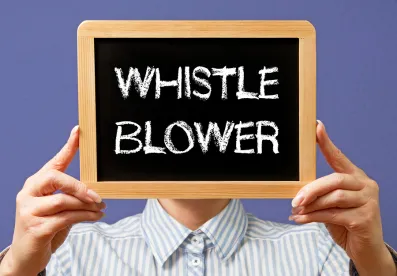Victoria Inojosa also contributed as an author to this post.
Although a whistleblowing employee typically cannot release fraud claims against her employer brought on behalf of the United States under the False Claims Act (FCA), courts have demonstrated a willingness to enforce properly executed waivers of retaliation claims under the FCA. The Middle District of Florida’s recent decision in United States ex rel. Higgins v. HealthSouth reflects the trend in favor of enforcing employee releases of retaliation claims under the FCA, and provides guidance as to how to structure a successful release.
Releases of FCA Claims
Typically, releases of private whistleblower fraud (qui tam) claims are unenforceable as a matter of public policy, as courts have found there are substantial public policy interests harmed by the enforcement of releases of qui tam claims. The goal of the FCA’s qui tam provisions is to prevent and rectify fraud against the United States by incentivizing private individuals to uncover and prosecute FCA claims. Qui tam suits alert the government to potential fraud and provide an economical way to supplement government enforcement resources, thus operating as an effective means of preventing fraud on the government, and the FCA is a preferred anti-fraud tool of the government, resulting in $59 billion in recoveries to the United States since 1986.
The economic benefits accrue to the government only– given the substantial bounties the FCA provides to successful whistleblowers, companies are often faced with expansive fraud claims that are expensive to defend. The potential for a settlement, either before costly and disruptive discovery or later in the case, therefore remains an important option to consider.
Although the government’s public interest in qui tam claims is frequently found to outweigh the interest in enforcing the release of such claims, courts have in limited circumstances enforced qui tam releases where they have found the allegations of fraud were sufficiently disclosed to the government. And separate from fraud claims, releases of whistleblower retaliation claims may be enforceable.
Releases of FCA Retaliation Claims – United States ex rel. Higgins v. HealthSouth
Higgins concerned the validity of a release that Melissa Higgins signed as part of her Severance Agreement from HealthSouth. The release included claims that Higgins might allege against HealthSouth as related to her termination. Shortly after Higgins’ employment ended, she filed an FCA qui tam suit, including a retaliation claim. Higgins alleged she raised concerns about billing practices within HealthSouth and was forced to resign because of those complaints. In defense against her retaliation claim, HealthSouth presented the Severance Agreement that Higgins signed, including the release.
Higgins argued that the Severance Agreement was unenforceable because it was contrary to public policy. The court disagreed. In doing so, the court reviewed a trail of decisions across federal district and appeals courts—specifically, the Second, Tenth, and Eleventh Circuits, as well as the Eastern District of Kentucky and the Northern District of Texas—in which similar cases had all been decided in favor of the employer. These courts have enforced releases because the public policy concerns implicated by qui tam fraud releases are not presented by releases of retaliation claim. Retaliation is a private employment claim, not a claim of fraud on the government.
Factors for Evaluating Releases
Following precedent, the court in Higgins scrutinized the release under a “totality of the circumstances” approach to ensure the release was knowing and voluntary, rather than coercive, and thus to ensure it was not against public policy. The court considered several factors, including: (1) the education and business experience of the individual who signs the release (the releaser); (2) the amount of time that the releaser has to consider the agreement before signing it; (3) the clarity of the agreement; (4) whether the releaser could have consulted with an attorney; (5) whether the employer encouraged or discouraged the releaser from consulting with an attorney; and (6) the benefit provided to the releaser for the release. Many courts also consider a seventh factor, whether the releaser was able to negotiate the terms of the agreement.
Takeaways
The Higgins decision provides additional support for employers seeking to enforce releases against former employees who allege their termination was in retaliation for protected whistleblower conduct. To improve the likelihood that a release will be upheld, employers should:
-
ensure the release language is clear to someone with the employee’s education and business experience;
-
give the employee a reasonable amount of time to consider the agreement and consult with an attorney if they like;
-
consider allowing the employee some input into the terms of the agreement, to show that it was mutually negotiated; and
-
provide something of value in exchange, such as a severance payment.
In the appropriate case, it may also be possible to combine the release of a whistleblower’s retaliation case with a release of the qui tam fraud claims. This is a complicated issue, often involving a thorough understanding of the facts and defenses of the case itself, and a careful negotiation with both the whistleblower and the government. Whether such a strategy is likely to be successful requires a case-by-case determination.






 />i
/>i

